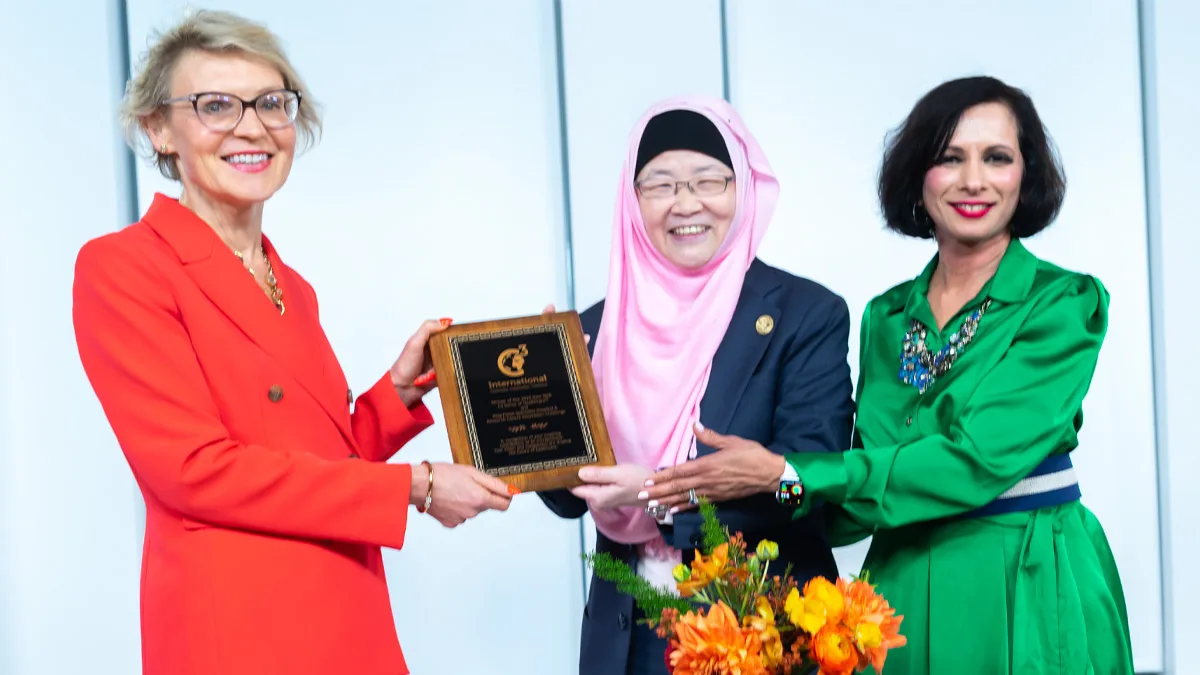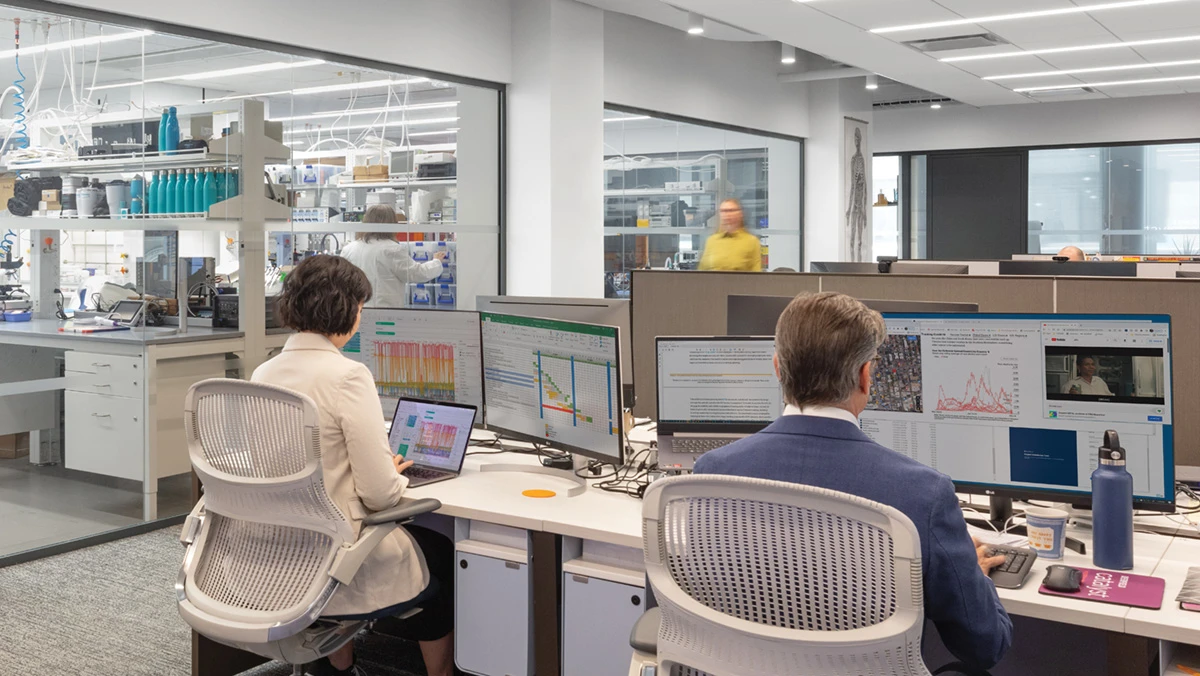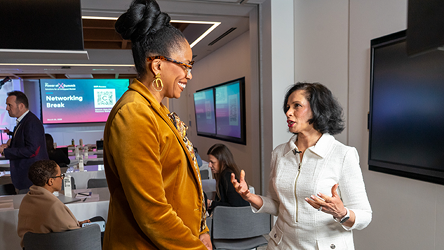September 9, 2025
Article
BioCurie Wins 2025 King Faisal & Davos of Healthcare Innovation Challenge

Overview
Cell and gene therapies (CGTs) contain hold transformative potential for patients with rare diseases, yet their high manufacturing costs keep them out of reach for the most, a problem that BioCurie is working to solve.
BioCurie’s platform for making cell and gene therapies (CGTs) affordable and accessible secured Co-Founder and CEO Irene Rombel, PhD, the top spot in the challenge.
BioCurie emerged as the winner of the 2025 King Faisal & Davos of Healthcare Innovation Challenge, taking home the top honor for its pioneering cell and gene therapy (CGT) manufacturing technology.
The competition, hosted by the King Faisal Specialist Hospital & Research Centre (KFSHRC), Cure, and C3 International, spotlighted five finalist startups with transformative solutions poised to change the future of global healthcare.
The win unlocks the opportunity to pilot its technology with KFSHRC in Saudi Arabia, an important step toward commercial deployment and broader global impact.
For Irene Rombel, PhD, Co-Founder and CEO of BioCurie, the recognition was deeply personal. “BioCurie is the culmination of my life’s work and passion, starting at the age of 12, to follow in the footsteps of my hero, Marie Curie, and pursue a career in science to help as many people as possible,” she said.
From Rare Disease to Mainstream: How BioCurie is Scaling CGTs With AI
BioCurie is developing an AI-enabled platform designed to lower the cost and complexity of manufacturing CGTs. By tackling production bottlenecks that have long limited access, the company aims to move CGTs from a niche offering for the few to an affordable, scalable treatment option for millions of patients worldwide, particularly those with rare diseases.
More than 7,000 rare hereditary diseases affect over 30 million Americans and 400 million people worldwide, yet only about 5 percent currently have an approved treatment. This makes people living with rare diseases one of the largest underserved patient communities in medicine, according to Rombel.
Gene therapies developed for rare inherited conditions are expected to open the door to treatments for more common illnesses, including cardiovascular, autoimmune, neurological, and infectious diseases. With more than 2,000 clinical trials now underway globally, Rombel noted that analysts estimate 300 to 400 potential product approvals in the coming years.
Cure spoke with Rombel about BioCurie’s mission, technology and lessons learned. This conversation has been edited for length and clarity.
Cure: First, explain the problem that you are attempting to address through BioCurie.
Rombel: [CGTs] could save millions of lives and alleviate the lives of millions more who live with debilitating chronic conditions. Unfortunately, the high molecular complexity of CGTs combined with the fast-growing demand has created production challenges, the future of CGT is seriously hampered by a very real and practical challenge in process development and manufacturing.
Cure: CGT development faces serious production hurdles. Tell us more about them.
Rombel: Low scalability, inefficiency, poor reproducibility, and a high manual labor component result in extremely high cost of goods (COGs) and protracted timelines, which is problematic given the compressed timelines for CGT development. These issues have led to delays in getting approved lifesaving CGT products to patients, resulting in patient deaths.
Rombel also told Cure that acute shortfalls in capacity and workforce are recognized across the industry as major bottlenecks and pain points for CGT. Also, poorly defined quality metrics, and inadequate data analytics can hamper the quality, safety and efficacy of emerging therapies. This leads to billions of dollars wasted annually in direct costs and lost revenue, while millions of patients who could benefit remain without access.
Cure: Tell us more about the solution BioCurie has developed to address this problem.
Rombel: BioCurie is pioneering mechanistic AI (mAI) software to address the manufacturing bottleneck and revolutionize the development and manufacturing of CGT. The mAI BioCurie PlatformTM[M1] is a first-in-class, scalable digital solution that empowers biopharma companies, contract manufactures, and research hospitals to predict and optimize CGT production processes.
Rombel told Cure that BioCurie’s patent-pending technology is designed to democratize AI-driven decision making for scientists and engineers across the product life cycle, including process optimization, scale-up, process monitoring, and automation. BioCurie’s mAI software greatly reduces the time, cost, and risk while increasing the quality, yield, and reproducibility of each product, enabling companies to deliver lifesaving therapies that are safe, effective, and commercially viable.
Cure: How will BioCurie’s technology help make gene therapies more affordable and available to patients?
Rombel: BioCurie’s mAI Platform is initially focused on adeno-associated virus gene therapy (AAV-GT). AAV-GTs, including Zolgensma and Elevidys, are transforming treatment for rare and devastating diseases like spinal muscular atrophy and Duchenne muscular dystrophy, but they remain the most expensive drugs in the world.
BioCurie’s flagship product, mAI AAV TM, the world’s first AI-driven software for AAV production, can be applied across development and manufacturing, from preclinical studies to commercial scale. The product is compatible with all major vectors, cell lines, and bioreactors, and has the potential to accelerate all 250+ clinical-stage candidates currently in the pipeline.
By reducing costs, BioCurie aims to make AAV-GTs more accessible and sustainable, while extending its AI platform to other CGTs to benefit even more patients.
Cure: What was a hard lesson you learned as an entrepreneur that you would share with others considering the entrepreneurial path?
Rombel: A key learning we had was to recruit customers as early as possible. We were trying to fundraise during a time when the market was very tight. Investors are particularly risk averse in a bear market and want the reassurance of early traction with customers. A lot of doors were opened once we had early customers.
Cure: So many start-ups burn through time and funding, without enough to show from it. BioCurie was able to build the alpha version of your platform on time and within budget, and you’re on track to launch the beta version, with full launch in 2026. How you were able to achieve this?
Rombel: It’s a testament to the exceptional team my Co-Founder and Chief Scientist, Professor Richard Braatz, PhD, from MIT, and I built, which includes the best and brightest engineers from MIT. Richard and I invested in careful planning and having the right people on board. And while the financial market was challenging, we successfully navigated that by securing non-dilutive funding through grants and early customers. This has positioned us well for our current Seed round, which we expect to close soon with some outstanding smart investors.
Cure: What will be the impact of BioCurie if you successfully bring it to market?
Rombel: With the handful of gene therapies already on the market costing on average 30 times the median household income in the US per dose, there are growing concerns that not all patients will be able to afford these treatments, and this will exacerbate existing inequalities. The worry is that the commercialization of CGTs might further penalize disadvantaged communities and ethnic groups that, on average, have lower incomes and more restricted access to healthcare.
Since the field is still fairly nascent, we have the opportunity to preempt this issue and help ensure equitable patient access from the outset. BioCurie’s AI-driven solution is addressing one of the main underlying causes of disparities in CGT access to make these therapies faster, better, and cheaper.
Q: What does winning this challenge mean for BioCurie?
A collaboration with King Faisel Research Hospital is a validation of our groundbreaking technology and will allow us to deploy our technology platform with a global medical research center. With KFSHRC’s strategic location, this will translate to profoundly greater patient access to lifesaving therapies.
Read more about the five finalists of the King Faisal & Davos of Healthcare Innovation Challenge, and about BioCurie.





